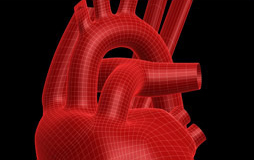Matagorda Regional Medical Center provides a wide variety of services to assist you with your cardiac care needs. From diagnostic services to rehabilitation following a cardiac incident, you will find that MRMC’s experienced and concerned staff is right here, close to home, to provide state-of-the-art care for you and your family.
Cardiac catheterization is one of the most widely performed cardiac procedures. In the United States, more than 1,000,000 cardiac catheterization procedures are performed annually according to a report from the American Heart Association.
About MRMC’s Cardiac Catheterization Lab
MRMC’s cardiac catheterization lab (Cath Lab) features modern technology and is staffed by highly trained specialists consisting of registered nurses and radiology and cardiovascular technologists. Our select team aids your cardiologist in the identification, diagnosis, and treatment of heart and vascular problems.
Some of our services include:
- Insertable Cardiac Monitors (Loop Recorders)
- Diagnostic Coronary and Peripheral Angiography
- Coronary Angioplasty and Stent placement
- Peripheral Angioplasty and Stent placement
- Intra-Aortic Balloon Pump (IABP)
- Permanent Pacemaker Insertion
- Implantable Cardioverter Defibrillator Insertion
What is Cardiac Catheterization?
Cardiac catheterization (cardiac cath or heart cath) is a procedure to examine the blood flow to your heart and how well your heart is working. A thin, hollow tube called a catheter is inserted into a large blood vessel that leads to your heart. Once the catheter is in place, several tests may be performed.
Patient Information
It is important that anyone preparing to undergo a hearth catheterization speak with their doctor about what to expect before, during, and after the procedure. After consulting your doctor, you are always welcome to call MRMC’s Cardiac Catheterization department at (979) 241-3427 with additional general questions. Finally, many patients also choose to review materials from reputable sources such as the American Heart Association. Click here to view the American Heart Association’s page on Cardiac Catheterization.
Admissions
Our friendly and courteous Outpatient Registration Representatives are here to serve your registration needs. To learn more about the admissions process, click here or call Central Scheduling at (979) 241-5966.
Cardiac (heart) and exercise programs are offered by Matagorda Regional Medical Center. If you have an existing heart condition, there are opportunities for you to take control of your life and significantly improve how you feel every day. A special exercise program will be designed to fit your individual needs and capabilities. You will rotate among various exercise stations that include treadmill, bike, and arm and leg resistance exercises. Your physician will determine the proper exercise level for you at each of these stations.
Your heart and blood pressure will be monitored and your exercise supervised by licensed personnel. Since your personal program will be prescribed according to your ability, levels will be increased as tolerated. Remember your heart is a muscle, and like any muscle it responds to exercise and becomes stronger.
Included with the exercise program is a dietary consultation given by a registered dietitian. Our goal is to supply you with the proper tools for a heart-healthy program that can effectively help you control cholesterol levels in the blood supply.
To get started, ask your doctor about whether you might benefit from this or a similar program. You must have your physician’s permission and a written order to enter and participate in the exercise program. It will also be necessary to have an exercise electrocardiogram to ensure your ability to participate. If you are interested or have questions, call the Cardio-Pulmonary Department at 979-241-5950.

MRMC offers a variety of ways to diagnose and treat issues of the heart. In addition to the common and more traditional diagnostics, such as electrocardiograms (EKG’s), stress tests, and blood tests, our cardiopulmonary department offers state-of-the-art echocardiograms and dopplers to evaluate the blood circulation in arteries and veins throughout the body. Sometimes nuclear stress tests are utilized so that a more specific reading can be made.
Any issue with the heart can be a frightening experience. When one has chest pain, an EKG is usually the first test ordered. This is a relatively basic screening exam that can tell the physician if you are currently having a cardiac event, or if you’ve had one in the past. Next, the physician may order a treadmill stress test, which has a higher accuracy since it is performed with the heart under stress.
The clinical term for “clogged arteries,” or blockage, is coronary artery disease, which slows the blood flow to the heart, and consequently chest pain occurs. Once the artery is completely blocked, the heart attack (otherwise known as a myocardial infarction, or MI) occurs. If a blockage is noted on the diagnostic exam, your physician may order a nuclear stress test. However, if the result is negative or borderline, a heart catheter may be ordered to check for coronary artery disease.
Angioplasty (use of a balloon to open clogged arteries), cardiac bypass surgery, and other major procedures are still referred to the tertiary care facilities, often at the Texas Medical Center. You and your physician will discuss the options if this level of care is indicated.
Cardiac Diagnosis Testing
Heart attack patients may be asked to undergo a number of diagnostic tests and procedures. By learning what these tests are and why they’re being done, you’ll feel more confident. These tests are important and help the doctor determine if a heart attack occurred, how much your heart was damaged and what degree of coronary artery disease (CAD) you may have. Your heart attack may have been the first symptom indicating CAD. The tests screen your heart and help the doctor determine what treatment and lifestyle changes will keep your heart healthy and prevent serious future medical events.
There are “non-invasive” and “invasive” diagnostic tests. Non-invasive tests don’t involve inserting needles, instruments or fluids into the body. Invasive procedures can include a simple needle prick for a blood test or shot, insertion of a tube, device or scope and major surgeries such as open-heart surgery.
